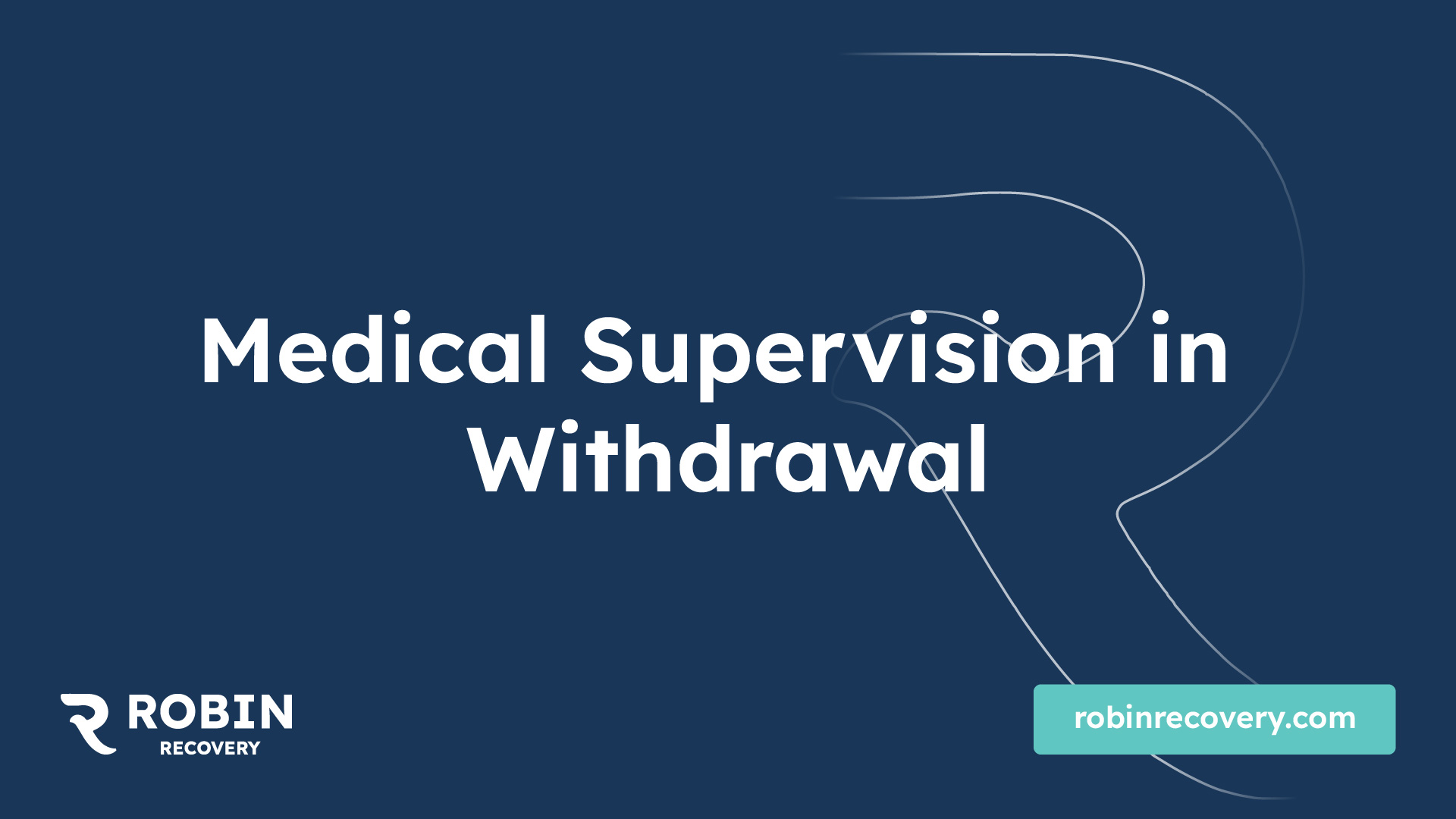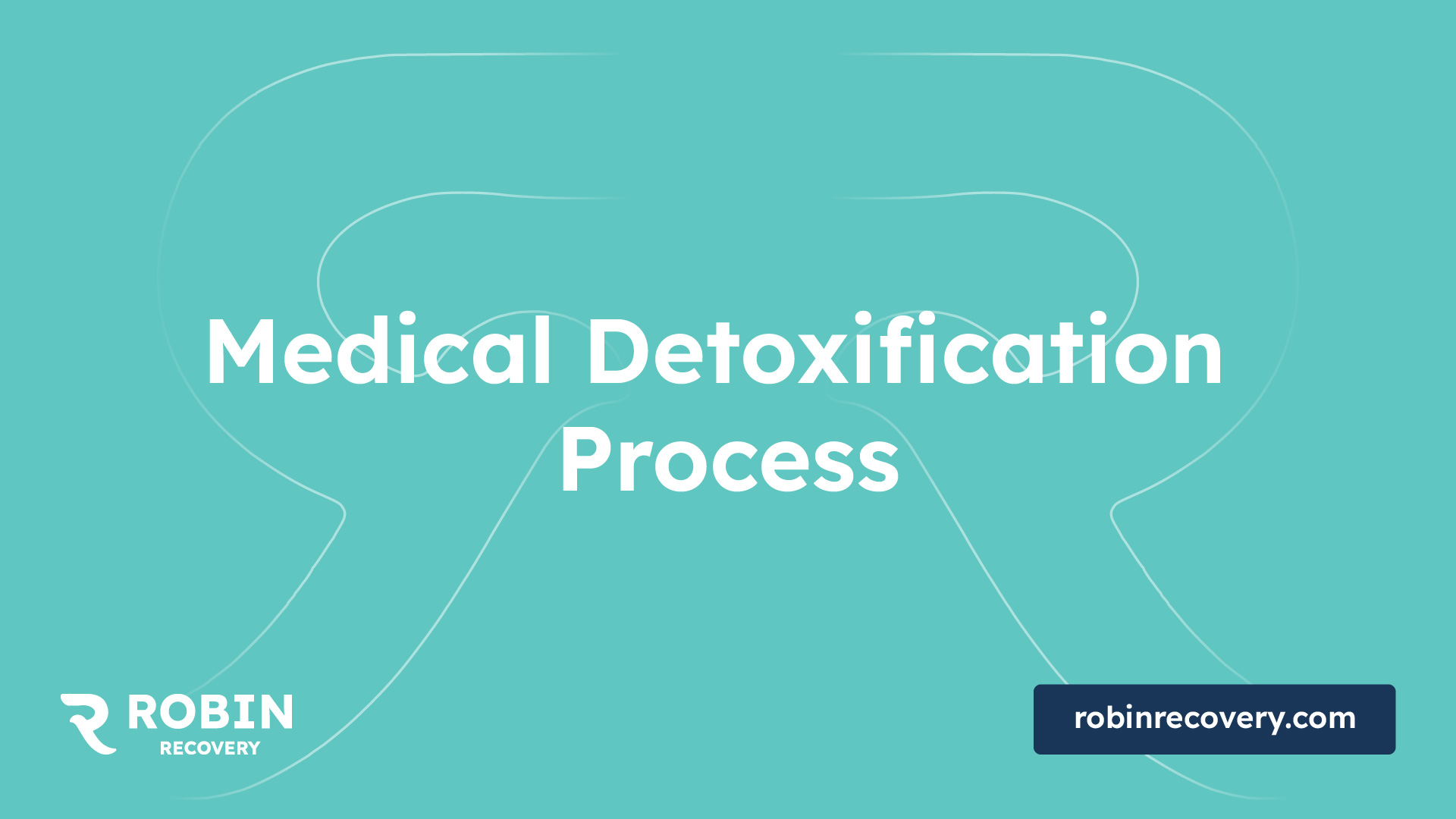Expert Tips on Solving Withdrawal Symptoms


Understanding Withdrawal Symptoms
Withdrawal symptoms occur when an individual stops using or significantly reduces their intake of a substance they have become dependent on. These symptoms can vary in intensity and duration, depending on the type of drug and the individual's biological makeup. It is important to understand the impact of drug dependence and the factors that influence withdrawal to effectively address withdrawal symptoms.
Impact of Drug Dependence
Drug dependence occurs when the body develops a tolerance and dependence on a substance with regular use. Tolerance means that larger doses of the substance are needed to achieve the same effects, while dependence means that the body requires the substance to avoid experiencing withdrawal effects. Drug dependence can have a significant impact on an individual's physical and mental well-being. It can lead to a cycle of addiction where the individual continues to use the substance despite negative consequences.
Factors Influencing Withdrawal
Withdrawal symptoms can vary from person to person and can range from mild to severe. The specific symptoms experienced during withdrawal depend on the substance or behavior from which the individual is withdrawing. Several factors influence the severity and duration of withdrawal symptoms:
- Level of drug dependence: The degree of dependence on the substance can affect the intensity of withdrawal symptoms. Those with higher levels of dependence may experience more severe symptoms.
- Duration of drug use: The length of time an individual has been using the drug can impact the severity of withdrawal symptoms. Prolonged use can lead to more significant physiological and psychological changes, resulting in more pronounced withdrawal symptoms.
- Dosage consumed: The amount of the substance consumed can influence the severity of withdrawal symptoms. Higher doses may lead to more intense symptoms.
- Route of administration: The method by which the drug is taken (e.g., oral, inhalation, injection) can influence the speed at which it reaches the brain and the intensity of withdrawal symptoms.
- Polydrug abuse: The use of multiple substances simultaneously or in succession can complicate withdrawal symptoms and their management.
- Metabolism: Variations in an individual's metabolism can affect the speed at which the substance is processed and eliminated from the body, potentially influencing the duration and severity of withdrawal symptoms.
- Age and gender: Age and gender can play a role in how an individual experiences withdrawal symptoms. These factors can influence the body's response to the substance and its withdrawal.
- Medical or mental health conditions: Pre-existing medical or mental health conditions can interact with withdrawal symptoms, making them more complex to manage.
- Genetics: Genetic factors can contribute to an individual's susceptibility to drug dependence and their response to withdrawal.
- Personal or family history of addiction: A personal or family history of addiction can increase the likelihood of experiencing withdrawal symptoms and may indicate a higher risk for addiction.
- Environmental aspects: Environmental factors, such as exposure to stress and trauma, can impact the severity of withdrawal symptoms. Stressful situations can exacerbate symptoms, making the withdrawal process more challenging.
Understanding the impact of drug dependence and the factors that influence withdrawal symptoms is essential for developing effective strategies to manage and address withdrawal. It is important to seek support from health professionals and consider the risks associated with untreated withdrawal. For more specific information on withdrawal symptoms related to opioids and alcohol, refer to the sections on opioid withdrawal symptoms and alcohol withdrawal challenges.
Managing Withdrawal at Home
For individuals experiencing withdrawal symptoms, managing the process at home can be an option under certain circumstances. This approach is suitable when symptoms are predicted to be mild to moderate in severity and support is available from a family member or friend. However, it's important to note that withdrawal should be supervised by a health professional to ensure complications are managed effectively [3].
Importance of Gradual Tapering
One effective strategy for managing withdrawal at home is to gradually taper off the substance, reducing the dose over time instead of stopping abruptly. This method is particularly useful for substances like opioids, benzodiazepines, and alcohol. Tapering helps minimize the intensity of withdrawal symptoms and makes the process more manageable.
By gradually reducing the dosage, the body has time to adjust and adapt to decreasing levels of the substance. This approach can help minimize the severity of withdrawal symptoms, making the process less overwhelming. It's important to establish a tapering plan in consultation with a healthcare professional who can provide guidance and monitor the progress.
Home-Based Support Strategies
During the withdrawal process, creating a supportive environment at home is crucial. Here are some home-based support strategies that can help:
- Encourage the person going through withdrawal to write down their reasons for choosing to withdraw and the advantages and disadvantages of using drugs. This exercise can help them stay motivated and remind them of their decision to give up drugs [3].
- Provide emotional support by being present during tough times. Letting the individual know that they have someone who cares and is there to support them can make a significant difference.
- Create a calm and stress-free environment. Avoid inviting people who use drugs to the home during the withdrawal period, as their presence may cause stress or tension for the person going through withdrawal.
- Encourage a healthy diet. Eating well during the withdrawal process can help reduce mood swings and minimize withdrawal symptoms. A varied diet that includes good carbohydrates, proteins, fresh fruits and vegetables, essential fats, and plenty of water is recommended [3].
- Ensure adequate hydration. Drinking plenty of fluids, approximately six to eight glasses daily, can aid in the detoxification process. Fluid intake can include water, fruit juice, cordial mixed with water, and non-fizzy mineral water.
By implementing these support strategies, individuals undergoing withdrawal at home can create an environment that promotes comfort, motivation, and overall well-being. However, it's crucial to seek guidance from healthcare professionals and establish a plan that suits the individual's specific needs and circumstances.

Medical Supervision in Withdrawal
When it comes to overcoming withdrawal symptoms, seeking medical supervision is crucial, especially for individuals experiencing withdrawal from substances like opioids, alcohol, and benzodiazepines. Withdrawal from these substances can be severe, and in some cases, life-threatening. Medical supervision during withdrawal ensures the safety and well-being of individuals as they navigate through this challenging phase of recovery.
Role of Health Professionals
Health professionals play a vital role in the management of withdrawal. They possess the necessary expertise and experience to monitor patients closely, provide appropriate medical interventions, and offer emotional support. Under medical supervision, patients can receive personalized treatment plans tailored to their specific needs.
Medical professionals closely observe patients during withdrawal to ensure their safety and comfort. They monitor vital signs, assess the severity of symptoms, and make adjustments to the treatment plan as needed. With their guidance, patients can navigate through withdrawal more effectively and minimize the risk of complications.
Risks of Untreated Withdrawal
Untreated withdrawal can pose significant risks to individuals struggling with substance abuse and addiction. Withdrawal symptoms can involve physical and psychological distress, making it challenging for individuals to manage them on their own. Without proper medical supervision and intervention, these symptoms can escalate, potentially leading to life-threatening complications.
For example, severe alcohol withdrawal can result in delirium tremens, a condition characterized by severe seizures and potential death. Estimates suggest that delirium tremens is fatal in about 15% of cases without treatment [5]. Similarly, withdrawing from opioids without medical management can lead to severe cravings, flu-like symptoms, and emotional distress. Individuals who have recently undergone opioid withdrawal are at an increased risk of dying from overdose.
Medical supervision during withdrawal helps to mitigate these risks by providing necessary medications, monitoring patients closely for signs of complications, and ensuring emotional support throughout the process. It offers a safe and controlled environment where individuals can receive the care they need to manage their withdrawal symptoms effectively.
In conclusion, seeking medical supervision during withdrawal is essential for individuals dealing with substance abuse and addiction. With the guidance and support of health professionals, individuals can safely navigate through withdrawal, manage their symptoms, and begin their journey towards recovery. Whether it's opioids, alcohol, or benzodiazepines, professional medical supervision ensures the safety, comfort, and well-being of individuals during this critical phase of the recovery process.
Specific Substance Withdrawal
Withdrawal symptoms can vary depending on the substance from which an individual is withdrawing. In this section, we will explore the specific withdrawal symptoms associated with opioids and the challenges faced during alcohol withdrawal.
Opioid Withdrawal Symptoms
Opioid withdrawal symptoms can be intense and uncomfortable, often resembling a severe flu-like illness. These symptoms typically occur when an individual stops or significantly reduces their use of opioids after developing physical dependence. Common opioid withdrawal symptoms include:
- Anxiety
- Agitation
- Sleep problems
- Muscle aches
- Runny nose
- Sweating
- Nausea
- Vomiting
- Diarrhea
- Drug cravings
While opioid withdrawal is not typically life-threatening, it can be extremely uncomfortable and may lead to other medical complications. It's important to note that individuals who have recently undergone opioid withdrawal are at an increased risk of overdosing if they relapse due to decreased opioid tolerance [6]. For more information on the duration of physical heroin withdrawal, visit our article on how long does physical heroin withdrawal last?.
Withdrawal from fentanyl, a potent synthetic opioid, can be particularly challenging. Fentanyl withdrawal symptoms tend to be more severe compared to other opioids. Acute symptoms can last up to ten days, and post-acute symptoms may persist for weeks or even months. Due to fentanyl's strength and rapid onset, individuals attempting to stop using it are at an increased risk of overdose [6].
Alcohol Withdrawal Challenges
Alcohol withdrawal can present unique challenges and risks, highlighting the importance of professional intervention. The severity of alcohol withdrawal symptoms can vary, ranging from mild anxiety to life-threatening seizures. In some cases, a severe form of alcohol withdrawal called delirium tremens (DTs) can occur, requiring immediate medical attention.
Withdrawal from alcohol can result in different tiers of symptoms, increasing in severity and disruption to daily life. Severe symptoms may include hallucinations, seizures, and delirium tremens (DTs), which necessitate urgent medical intervention.
Attempting to go through alcohol withdrawal independently can be risky due to the unpredictable swing of symptoms. Symptoms can swiftly escalate into severe manifestations like seizures or delirium tremens (DTs) without professional monitoring [7]. For more information on alcohol withdrawal, including signs, symptoms, and treatment options, refer to our article on heroin withdrawal: signs, symptoms & treatment.
Managing opioid withdrawal and alcohol withdrawal under medical supervision is crucial to ensure the safety and well-being of individuals experiencing withdrawal. The guidance of health professionals during the withdrawal process helps to mitigate risks and provides necessary medications and emotional support. For more information on the benefits of medical supervision during withdrawal, continue reading our article on the medical detoxification process.

Medical Detoxification Process
When it comes to addressing withdrawal symptoms during addiction recovery, the medical detoxification process plays a crucial role. Formerly known as detox, medical detox allows individuals struggling with substance abuse and addiction to receive professional support and supervision while navigating through challenging withdrawal symptoms [6]. Let's explore the purpose of medical detox and the benefits of medical supervision.
Purpose of Medical Detox
The primary purpose of medical detox is to provide a safe and supportive environment for individuals during the initial stages of recovery. Withdrawal symptoms can be physically and psychologically distressing, making it essential to have medical professionals monitor patients closely. Medical detox helps to manage withdrawal symptoms, alleviate discomfort, and minimize the risk of dangerous withdrawal complications [5].
The medical detox process involves the administration of medications, when appropriate, to help ease withdrawal symptoms and reduce cravings. This can make the withdrawal process more bearable and promote engagement in further treatment and recovery programs. Seeking medical detoxification can provide individuals with the necessary support to overcome the challenges associated with withdrawal and increase their chances of successful recovery.
Benefits of Medical Supervision
Undergoing medical detoxification with professional supervision offers several benefits. Firstly, it allows for close clinical observation of withdrawal symptoms, ensuring early recognition of medical issues that may arise during the process. This enables prompt intervention and treatment, reducing the risk of complications and promoting overall safety.
Additionally, medical supervision during detoxification enables the diagnosis and early treatment of any related medical problems that may be present, such as co-occurring mental health disorders or physical conditions associated with substance abuse. This comprehensive approach addresses not only the immediate withdrawal symptoms but also any underlying health issues that may need attention.
For substances like opioids, alcohol, and benzodiazepines, withdrawal can be severe and, in some cases, life-threatening. Medical detox under professional supervision ensures that patients receive the necessary monitoring, personalized treatment plans, and medications to manage withdrawal symptoms effectively, ensuring their safety throughout the process [4].
It is important to note that seeking medical support during withdrawal is crucial, especially when dealing with substances like alcohol, GHB, benzodiazepines, or ketamine. Consulting with a doctor or an alcohol and other drug treatment service is highly recommended to ensure safety and to receive appropriate guidance and care.
In summary, the medical detoxification process provides a supervised and supportive environment for individuals going through withdrawal. By seeking medical supervision, individuals can receive the necessary care, medications, and monitoring to manage withdrawal symptoms effectively and safely. This can be particularly important for substances with severe withdrawal symptoms, ensuring a smoother transition into further treatment and recovery programs.
Withdrawal Management Strategies
When it comes to managing withdrawal symptoms, there are various strategies that can be employed to alleviate discomfort and support the individual through the process. Two key approaches include the use of medications and providing emotional support.
Medications for Withdrawal
Medications play a crucial role in the management of withdrawal symptoms associated with substance dependence. There are FDA-approved medications available for different types of addictions, such as opioids and alcohol. These medications work in various ways to reduce drug use, cravings, and withdrawal symptoms.
For individuals experiencing opioid withdrawal, medications like buprenorphine, methadone, and naltrexone can be prescribed to reduce cravings and mitigate withdrawal symptoms. Additionally, lofexidine hydrochloride (Lucemyra) has been approved by the FDA for the mitigation of withdrawal symptoms to facilitate abrupt discontinuation of opioids in adults. It's important to note that medications may not completely prevent withdrawal symptoms, but they can significantly improve the overall withdrawal experience.
In the case of alcohol withdrawal, medications such as benzodiazepines (e.g., diazepam) or anticonvulsants (e.g., carbamazepine) may be prescribed to manage withdrawal symptoms and prevent complications. These medications can help reduce the risk of seizures and manage symptoms like anxiety and insomnia [10].
It's essential to consult with a healthcare professional to determine the most appropriate medication and dosage for managing withdrawal symptoms. Medical supervision and monitoring are vital to ensure the safe and effective use of these medications.
Emotional Support in Withdrawal
Emotional support plays a critical role in helping individuals navigate the challenges of withdrawal. During this time, individuals may experience a range of emotions, including anxiety, depression, irritability, and restlessness. Providing a supportive and understanding environment can significantly contribute to their well-being and recovery.
One effective strategy is to encourage individuals going through withdrawal to write down their reasons for choosing to withdraw, as well as the advantages and disadvantages of using drugs. This exercise can help them stay motivated and remind them of their decision to give up drugs.
Additionally, being present during tough times and offering emotional support can be crucial. Friends, family members, or support groups can provide reassurance, encouragement, and understanding. However, it's important to be mindful of not causing stress or tension for the person going through withdrawal. Creating a calm and supportive environment can help them feel safe and less alone.
Seeking professional help from therapists or counselors who specialize in addiction and withdrawal can also provide valuable emotional support. These professionals can offer guidance, coping strategies, and tools to manage the emotional challenges associated with withdrawal.
By combining medication-assisted treatment with emotional support, individuals can receive comprehensive care that addresses both the physical and psychological aspects of withdrawal. This holistic approach can greatly enhance the chances of successful withdrawal management and long-term recovery.
Remember, withdrawal management should ideally be conducted under the supervision of healthcare professionals to ensure the safety and well-being of individuals going through withdrawal. Medical detoxification, where a team of doctors and nurses can help manage withdrawal symptoms, alleviate discomfort, and minimize the risk of dangerous withdrawal complications, can be immensely helpful in early recovery and has the potential to ultimately save lives.
References
[1]: https://www.verywellmind.com/what-is-withdrawal-how-long-does-it-last-63036
[2]: https://www.healthdirect.gov.au/addiction-withdrawal-symptoms
[3]: https://adf.org.au/reducing-risk/withdrawal/home-based/
[4]: https://www.coniferpark.com/blog/how-do-you-solve-withdrawal-symptoms
[5]: https://americanaddictioncenters.org/withdrawal-timelines-treatments
[6]: https://clearbehavioralhealth.com/withdrawal-management/
[7]: https://www.healthtechzone.com/topics/healthcare/articles/2024/05/02/459430-reasons-seek-professional-support-during-alcohol-withdrawal.htm
[8]: https://nida.nih.gov/research-topics/opioids/medications-opioid-overdose-withdrawal-addiction-infographic
